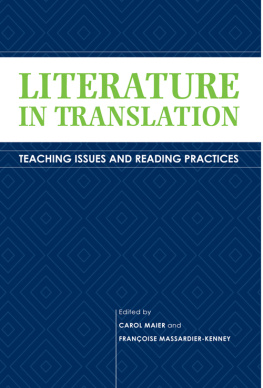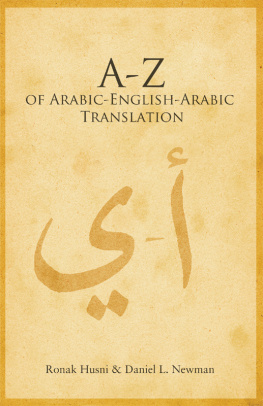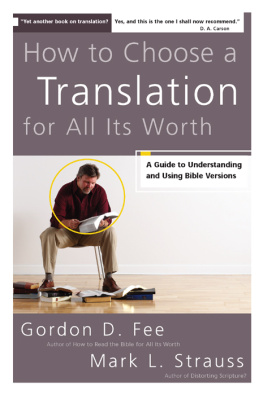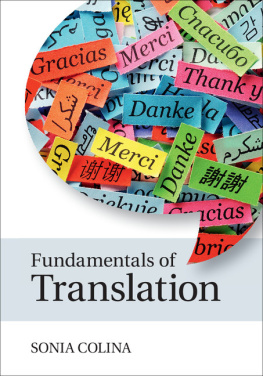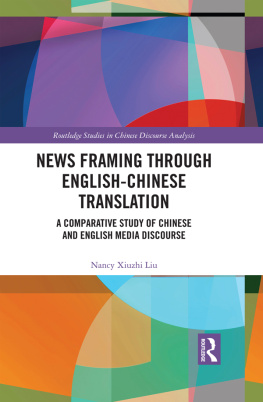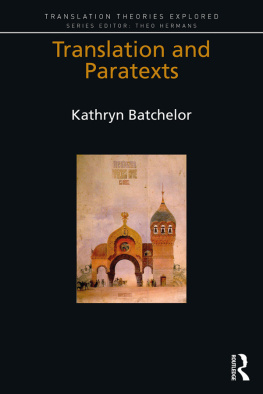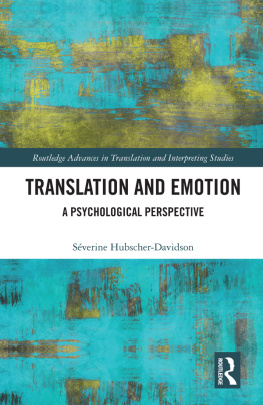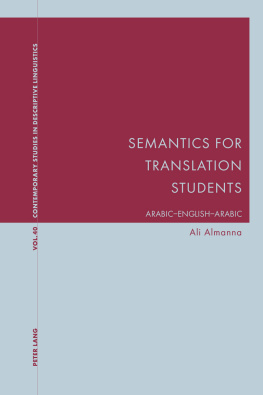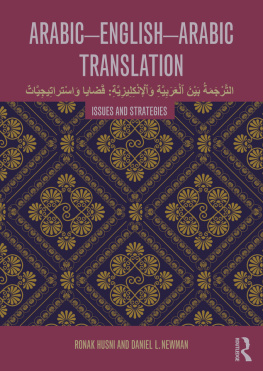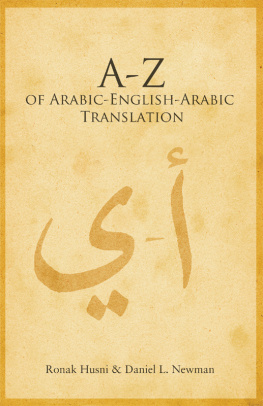
p.i
Thinking English Translation
Thinking English Translation: Analysing and Translating English Source Texts is a practical guide to analysing and translating English source texts.
focuses on pre-translation analysis where students are guided to consider the features of a variety of English texts and the various implications for translation into other languages.
onwards examines language variety in English in more detail and provides strategies for dealing with translation challenges in a wide range of text types.
Thinking English Translation: Analysing and Translating English Source Texts gives students a framework for a better understanding of how to approach source texts in order to tackle translation assignments, whether in class or in the workplace, with confidence.
Stella Cragie, a Qualified Member of the Institute of Translation and Interpreting, and former Principal Lecturer in Translation at the University of Westminster, is now a freelance translator.
Ann Pattison is a former Senior Lecturer in Translation at the University of Westminster and now works as a freelance translator, editor and writer.
p.ii
Titles of related interest
Thinking Italian Translation
A Course in Translation Method: Italian to English
Stella Cragie, Ian Higgins, Sndor Hervey and Patrizia Gambarotta
Russian Translation
Theory and Practice
Edna Andrews and Elena Maksimova
Routledge Course in Japanese Translation
Yoko Hasegawa
Routledge Encyclopedia of Translation Studies
Second Edition
Mona Baker and Gabriela Saldanha
Arabic-English-Arabic Legal Translation
Hanem El-Farahaty
In Other Words
A Coursebook on Translation
Mona Baker
Becoming a Translator
An Accelerated Course
Douglas Robinson
The Scandals of Translation
Lawrence Venuti
Translation Studies
Susan Bassnett
https://www.routledge.com/Thinking-Translation/book-series/SE0006
p.iii
The Transformation of
Analysing and Translating English
Source Texts
Stella Cragie and Ann Pattison

p.iv
First published 2018
by Routledge
2 Park Square, Milton Park, Abingdon, Oxon OX14 4RN
and by Routledge
711 Third Avenue, New York, NY 10017
Routledge is an imprint of the Taylor & Francis Group, an informa business
2018 Stella Cragie and Ann Pattison
The right of Stella Cragie and Ann Pattison to be identified as authors of this work has been asserted by them in accordance with sections 77 and 78 of the Copyright, Designs and Patents Act 1988.
All rights reserved. No part of this book may be reprinted or reproduced or utilised in any form or by any electronic, mechanical, or other means, now known or hereafter invented, including photocopying and recording, or in any information storage or retrieval system, without permission in writing from the publishers.
Trademark notice: Product or corporate names may be trademarks or registered trademarks, and are used only for identification and explanation without intent to infringe.
British Library Cataloguing in Publication Data
A catalogue record for this book is available from the British Library
Library of Congress Cataloging in Publication Data
A catalog record for this book has been requested
ISBN: 978-1-138-71394-9 (hbk)
ISBN: 978-1-138-71403-8(pbk)
ISBN: 978-1-315-22947-8 (ebk)
Typeset in Times New Roman
by Swales & Willis Ltd, Exeter, Devon, UK
p.vii
The authors and publisher would like to thank the following translators and institutions for their invaluable contributions to (annotated translations): Dr Fouad Abdelrazek (City University, London), Lucy-Jane Collard (Senior Lecturer, Department of Modern Languages and Cultures, University of Westminster), Hsin-Jung Chung (Lecturer in Translation and Interpreting, University of Westminster), Philippe Galinier (MCIL, MITI), Dr Elsa Huertos-Barros (Lecturer in Translation Studies, University of Westminster), Susanne James (MA, MCIL, FHEA), Dr Jacqueline Lam-McArthur (FCIL), Gloria Meneses Gonzalez (MCIL, MITI), Florence Mitchell (FITI), Evelyn Reisinger MA, MSc, Dip.Trans. (Lecturer, City University, London), Associate Professor Natalia Sigareva (Department of Translation and Interpreting Studies, Herzen State Pedagogical University of Russia, St Petersburg), Associate Professor Dr Tatiana Yudina (Head of the Department of Translation and Interpreting Studies, Herzen State Pedagogical University of Russia, St Petersburg), and the authors Jane Davis and Alison Weir. Our grateful thanks also go to Ian Higgins and other contributors to the Thinking Translation series, as an inspiration and starting point for this book.
p.1
Thinking English Translation: Analysing and Translating English Source Texts provides a practical approach to the analysis of and translation from English. More specifically, this book is designed for use on translation courses for advanced undergraduates and for postgraduates, and as a resource for anyone with an interest in translation, including educators and translator trainers.
The principal aim of the book is to create a framework for a better understanding of the (English) source text (or ), i.e. the text requiring translation, and to encourage aspiring translators to think more carefully about the significance of the ST for translation, whether in a class context, or through independent study.
and summarising as tools for text analysis is also explored.
deals specifically with language variety and quality in English, explains the importance of culture and context, and demonstrates how to develop strategies for tackling translation challenges in a wide range of situations and text types.
offers a series of translations from English into five world languages (Arabic, Chinese, French, Russian and Spanish, which with English form the six working languages of the United Nations). The translations are accompanied by annotations showing how analytical tools can help the translator evaluate and tackle translation challenges, and complement the text discussions and analyses we provide.
Designed to be practical, Thinking English Translation can be used to support a range of translation teaching methods and materials in a higher education or independent learning context. The book originates from a perceived need for a holistic approach to analysis and discussion of the many variables that characterise STs features that sometimes only emerge during the actual translation process. An understanding and consideration of these features before attempting a translation gives the translator a head-start and inspires greater confidence in tackling assignments, whether in an academic context or in the workplace. Analytical tasks are provided as a practical way of exploring texts and identifying aspects of content, language and culture, and serve as a stepping stone for approaching and developing translation skills.
p.2
Experience of teaching translation reveals how important it is to gain an in-depth understanding of how texts develop ideas, set out arguments and provide information. A practical approach to ST analysis can deliver a more informed, coherent and appropriate target text () the text which is the product of the translation process by developing awareness of the text as a whole.
Next page


